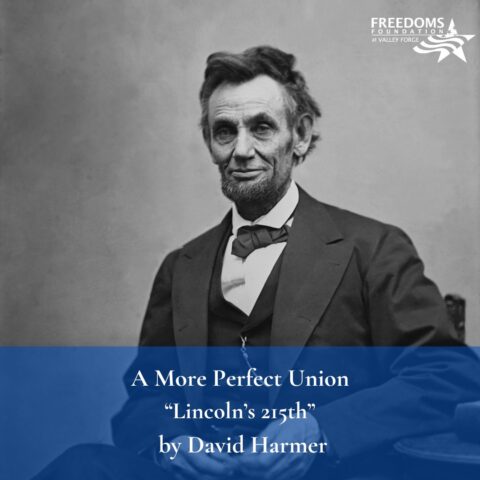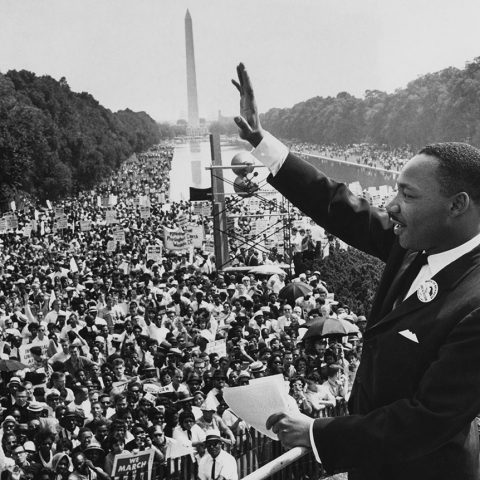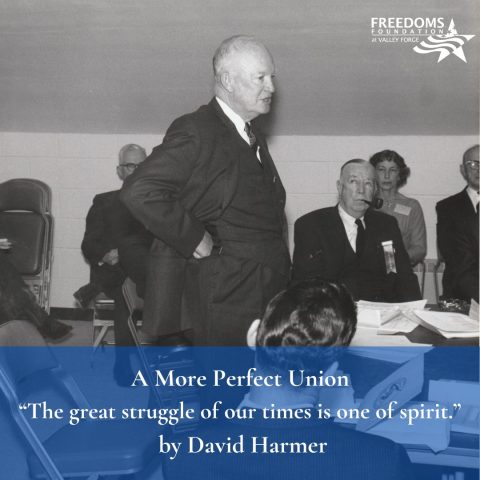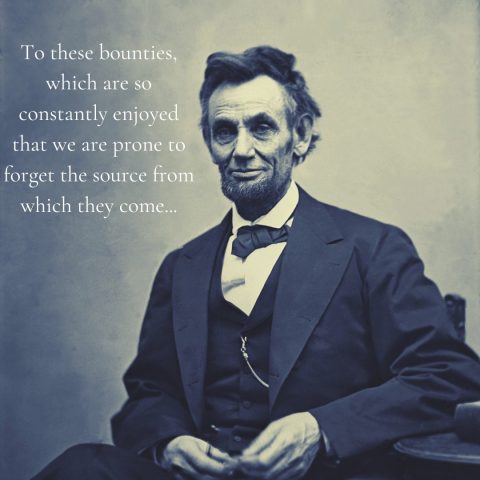A Solemn Anniversary

By David Harmer
“The formal ceremonies of surrender aboard the Missouri,” wrote General Douglas MacArthur in his Reminiscences, “were fixed for September 2, 1945”—75 years ago today. “I had received no instructions as to what to say or what to do. I was on my own . . .”
Put yourself in General MacArthur’s position. What would you have said?
Nearly four years had passed since Japan had crippled the American fleet at Pearl Harbor—a blow that sealed the fate of the Philippines, where MacArthur, as commanding general, U.S. Army Forces in the Far East, was based. The U.S. Navy could no longer maintain supply lines, and in any event, there weren’t nearly enough forces to supply. Short on aircraft, airfields, munitions, and men, MacArthur consolidated his troops on the Bataan Peninsula, across Manila Bay from the Philippine capital, and on Corregidor, the island fortress guarding the Bay’s entrance.
In quick succession, Hong Kong surrendered, Singapore fell, and the Japanese leapfrogged through Borneo, Malaya, and Indonesia. Within a month of attacking Pearl Harbor, they invaded Luzon (the largest of the Philippine islands, on which Manila is located). By then, Bataan and Corregidor were the only remaining Allied strongholds in all of Southeast Asia.
Outnumbered and outequipped, MacArthur’s men fought a valiant series of delaying actions, stalling the Japanese advance for weeks, then months. The exhausted soldiers, Americans and Filipinos alike, subsisted on half rations, then less. Living on the same diet as his men, MacArthur lost 25 pounds. Tokyo Rose announced that he would be captured, transported to the Imperial Plaza in Tokyo, and publicly hanged. He escaped the final Japanese advance only narrowly, and only because President Roosevelt ordered him to. He left in command Maj. Gen. Jonathan Wainwright, a friend from their days at West Point.
On four small, battle-scarred PT boats, MacArthur and his staff (accompanied by his wife and their young son) made a daring all-night run, breaking through the naval blockade, dodging enemy ships, fighting heavy seas, and against all odds reaching Cagayan (on Mindanao, second-largest of the Philippine islands). From there, they took two decrepit B-17s over enemy-held territory to Australia, where they organized the American counteroffensive against Japan.
Wainwright held out as long as possible, then longer, but finally succumbed to the inevitable and surrendered Corregidor. There ensued the infamous Bataan Death March. Of the 80,000 prisoners who began the 70-mile ordeal, only 56,000 survived to reach the concentration camps. Thousands were tortured, abused, or wantonly killed en route: bayoneted, shot point blank, run over by trucks, deprived of water until they died of thirst.
Through 1942, and 1943, and 1944, and 1945, as MacArthur fought his way northward through the Pacific Theater from Australia back to the Philippines, he was never far from Japanese atrocities. Lt. Col. Guillermo Nakar wrote, “Your victorious return is the nightly subject of prayer in every Filipino home”; he was tortured and beheaded. Vice Admiral Fukudome was captured at sea; stopping at nothing to recover him, the Japanese nearly exterminated the helpless civilians of southern Cebu.
“Japanese resistance began to stiffen,” MacArthur recalled. “There was no surrendering. Every Japanese soldier fought to the death.” Kamikaze air attacks killed several of his colleagues. But what troubled him most was the fate of the thousands of prisoners of war:
Japanese soldiers guarding them had become more and more sadistic. I knew that many of these half-starved and ill-treated people would die unless we rescued them promptly. . . . I made my way to the concentration camps. I cannot recall, even in a life filled with emotional scenes, a more moving spectacle . . . The food given them was generally full of worms and skimpy even by Oriental standards. The men who greeted me were scarcely more than skeletons. . . . I looked down the lines of men bearded and soiled, with hair that often reached below their shoulders, with ripped and soiled shirts and trousers, with toes sticking out of such shoes as remained, with suffering and torture written on their gaunt faces. Here was all that was left of my men of Bataan and Corregidor.
Still the fighting persisted: “The Japanese fought to the bitter end, blowing up many of their tunnels in suicidal desperation.” When MacArthur was finally able to restore full civilian, constitutional government to the Philippines, he observed of Manila:
I withdrew our forces and installations from this beautiful city that, open and undefended, its churches, monuments, and cultural centers might, in accordance with the rules of warfare, be spared the violence of military ravage. The enemy would not have it so, and much that I sought to preserve has been unnecessarily destroyed by his desperate action at bay.
Among the structures pointlessly reduced to ashes as the Japanese withdrew was MacArthur’s own penthouse apartment, with its irreplaceable treasures from around the Orient and its incomparable military library.
At long last, MacArthur arrived in defeated Japan as supreme commander for the Allied powers. On the eve of the surrender ceremonies, he was reunited with General Wainwright for the first time since leaving him in command of the besieged forces defending the Philippines:
The door swung open and there was Wainwright. He was haggard and aged. His uniform hung in folds on his fleshless form. He walked with difficulty and with the help of a cane. His eyes were sunken and there were pits in his cheeks. His hair was snow white and his skin looked like old shoe leather. He made a brave effort to smile as I took him in my arms, but when he tried to talk his voice wouldn’t come.
After fleeing for his life with his wife and his son; after seeing the suffering of his comrades in arms; having witnessed the aftermath of the brutal occupation of his beloved Philippines; after four long years of war, what did MacArthur say, 75 years ago today, on the deck of the U.S.S. Missouri? Nothing of vengeance; nothing of reproval; only words of dignity and magnanimity.
We are gathered here, representatives of the major warring powers, to conclude a solemn agreement whereby peace may be restored. The issues, involving divergent ideals and ideologies, have been determined on the battlefields of the world and hence are not for our discussion or debate. Nor is it for us here to meet, representing as we do a majority of the people of the earth, in a spirit of distrust, malice or hatred. But rather it is for us, both victors and vanquished, to rise to that higher dignity which alone befits the sacred purposes we are about to serve, committing all our people unreservedly to faithful compliance with the obligation they are here formally to assume.
It is my earnest hope and indeed the hope of all mankind that from this solemn occasion a better world shall emerge out of the blood and carnage of the past—a world founded upon faith and understanding—a world dedicated to the dignity of man and the fulfillment of his most cherished wish—for freedom, tolerance and justice.
The terms and conditions upon which the surrender of the Japanese Imperial Forces is here to be given and accepted are contained in the instrument of surrender now before you.
As Supreme Commander for the Allied Powers, I announce it my firm purpose, in the tradition of the countries I represent, to proceed in the discharge of my responsibilities with justice and tolerance, while taking all necessary dispositions to insure that the terms of surrender are fully, promptly and faithfully complied with.
The Japanese delegates signed the document. Then, at 9:08 a.m. local time, MacArthur signed. He was followed by representatives of the United States, China, the United Kingdom, the Soviet Union, Australia, Canada, France, the Netherlands, and New Zealand. When the last representative had signed, MacArthur said:
Let us pray that peace be now restored to the world and that God will preserve it always. These proceedings are closed.
Witnesses reported that at that moment, the low, gray clouds parted and the sun shone brightly through.
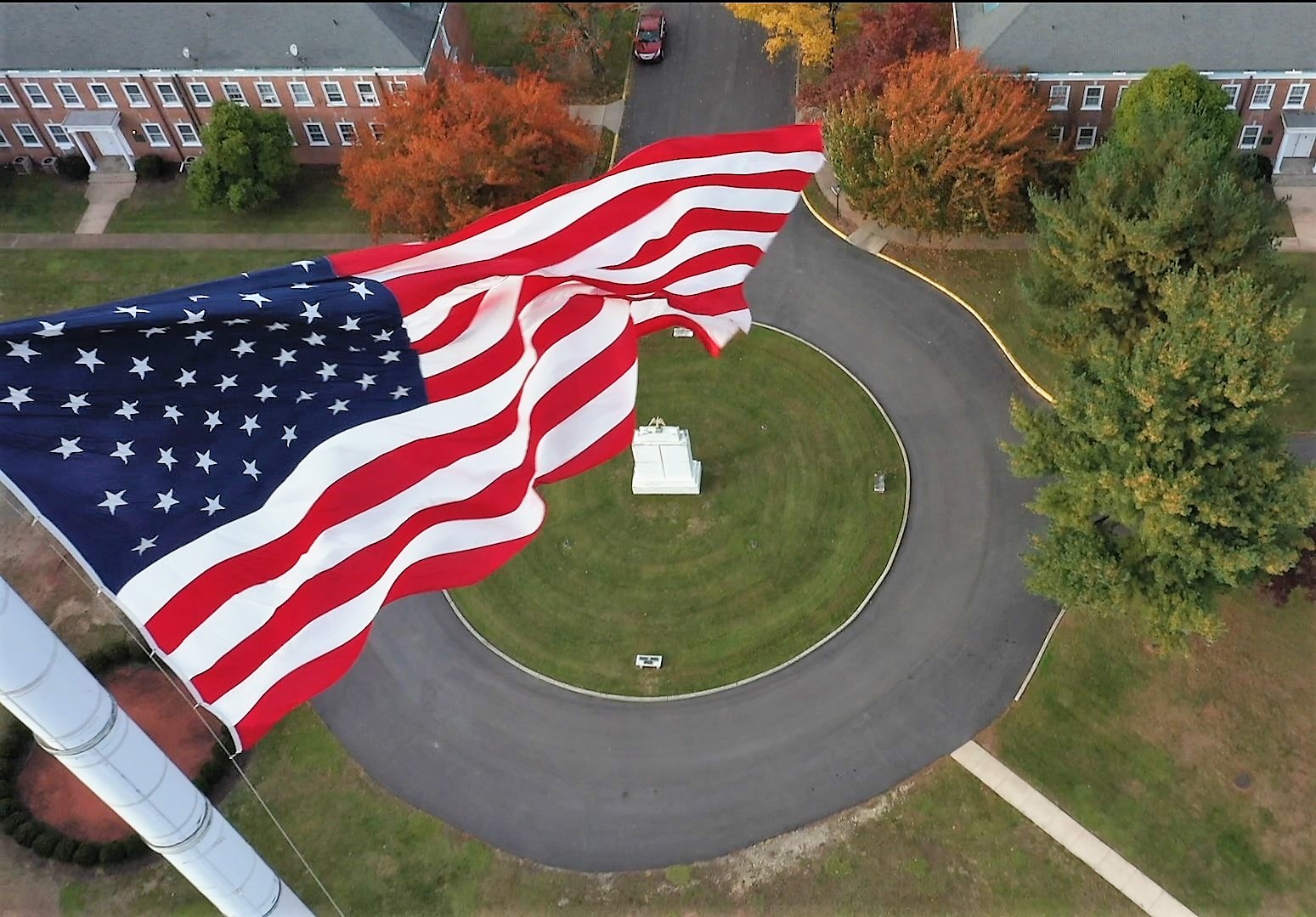
Donate Today
Supporting America’s first principles of freedom is essential to ensure future generations understand and cherish the blessings of liberty. With your donation, we will reach even more young people with the truth of America’s unique past, its promising future, and the liberty for which it stands. Help us prepare the next generation of leaders.

